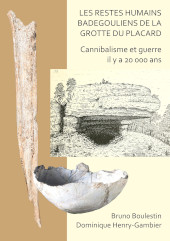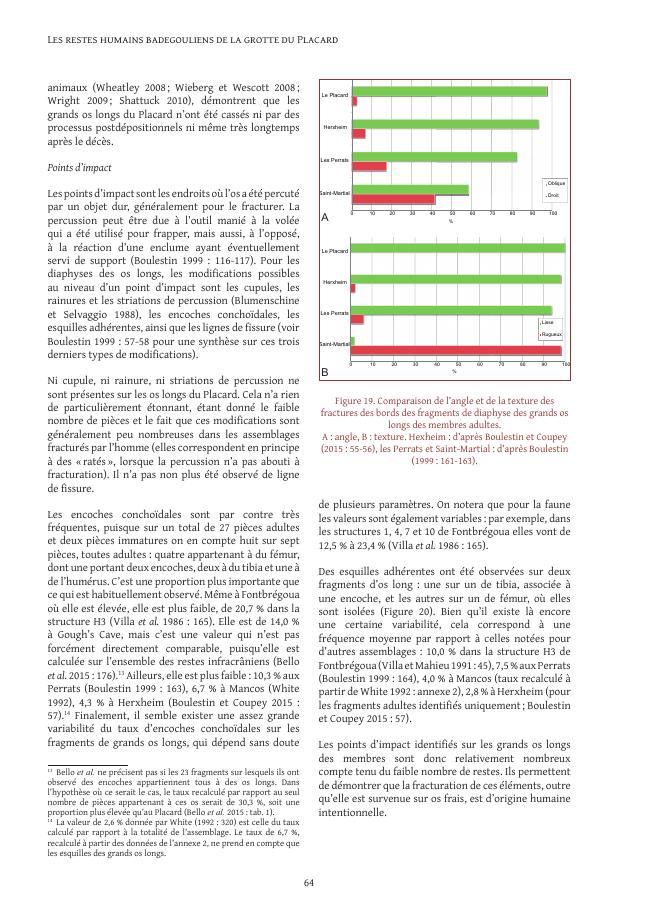Les restes humains badegouliens de la Grotte du Placard : Cannibalisme et guerre il y a 20,000 ans
150 p.
Placard is a major Upper Palaeolithic site in France, known from as early as the middle of the nineteenth century. Paradoxically, owing to the antiquity of the poorly-documented early excavations, dozens of thousands of remains that were uncovered then are either unpublished to this day, or have only been the subjects of limited and often obsolete studies. This is the case in particular for the human remains, for which, until recently, the cultural attribution was moreover still under debate. Dating makes it clear they belong to various periods, yet most of them form a homogeneous group remarkable by traces of a specific treatment. Thanks to radiocarbon dating and to data from further excavations carried out some thirty years ago, this group can be dated from the Badegoulian period. Les restes humains badegouliens de la Grotte du Placard presents a detailed study of the Badegoulian human remains. On the basis of quantification and bone modification analyses, they describe and identify the treatments of the.
dead. Whereas the general treatment pertains to the practice of cannibalism, more specific ones, focused on the head, can be explained by the crafting of trophies. On the whole, these treatments can be interpreted in a consistent manner by one or several episodes of armed conflicts, begging the question of the possible existence of warfare during the Upper Palaeolithic. Thus, despite the antiquity of the discovery, the Badegoulian human bones from le Placard still constitute a unique assemblage that contributes greatly to our knowledge of the behaviours of hunter-gatherer populations in European prehistory. [Publisher's text].
47 figures, 14 tables (56 pages of colour).
-
Informationen
ISBN: 9781789693706
THEMENBEREICHE



